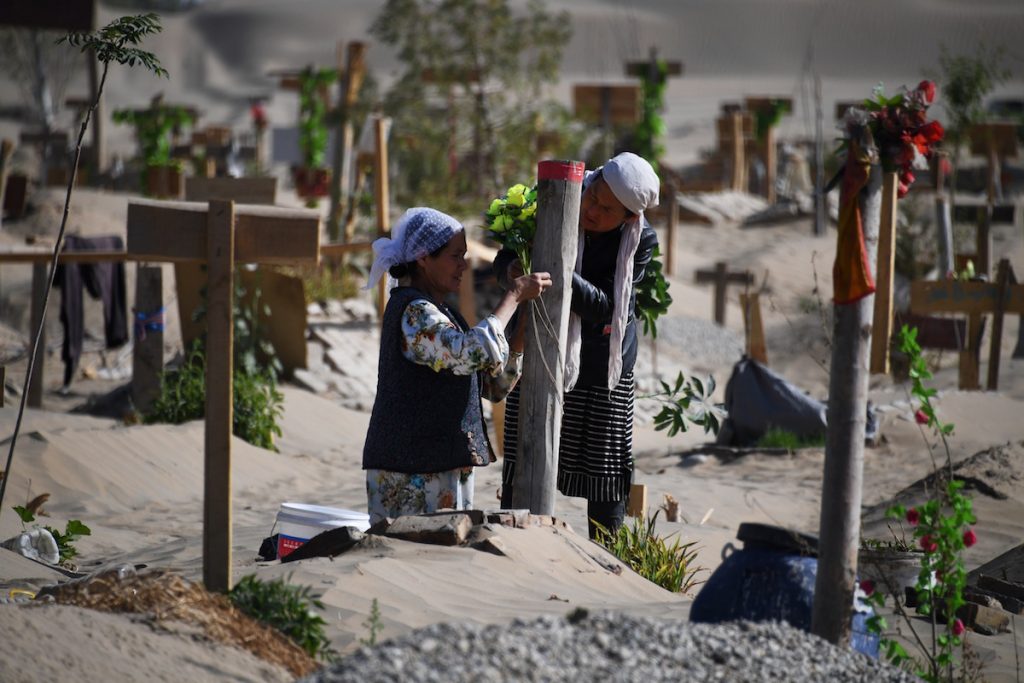Human rights group Amnesty International presented new evidence this week to prove what it described as “crimes against humanity” in China’s Xinjiang Uyghur Autonomous Region.
In a report released on Thursday, June 10, the human rights group noted how predominantly Muslim ethnic minorities have been subjected to torture and maltreatment while in detention.
Millions of others have also reportedly faced harsh surveillance and persecution because of their religion, language, and culture.
The 160-page report titled “Like We Were Enemies in a War’: China’s Mass Internment, Torture, and Persecution of Muslims in Xinjiang” documents how China conducted “widespread” and “systematic” abuses against Muslims in the region.
“The Chinese authorities have created a dystopian hellscape on a staggering scale in the Xinjiang Uyghur Autonomous Region,” said Agnès Callamard, Amnesty International’s secretary general.
“It should shock the conscience of humanity that massive numbers of people have been subjected to brainwashing, torture and other degrading treatment in internment camps, while millions more live in fear amid a vast surveillance apparatus,” she added.
Religious persecution
Muslims are not free to practice their religion in Xinjiang, said the report.
Dozens of Muslim men and women told Amnesty International the regional Chinese authorities showed extraordinary hostility towards their Islamic faith.
Basic religious and cultural practices have been deemed “extremist” and used as grounds for detention.
As a result, most people have stopped praying or showing any outward signs of observing Islam. This extends to dress, grooming and even speech.
“We couldn’t say ‘as-salamu-alaykum’ (peace be upon you) …anymore,” one man told Amnesty International. Korans, prayer mats and other religious artifacts have effectively been banned.
Former Chinese government cadres told Amnesty International how they barged into people’s homes to confiscate religious items.
“We told them to remove photos [of mosques] and put up [Chinese] flags,” one said.
Those interviewed by Amnesty International described how mosques, shrines, gravesites, and other religious and cultural sites have been systematically demolished or repurposed throughout Xinjiang.

Arbitrary detention
The new report presents how, since early 2017, huge numbers of men and women in Xinjiang have been arbitrarily detained.
They include hundreds of thousands who have been sent to prisons in addition to hundreds of thousands – perhaps even a million or more – who have been sent to internment camps, said the report.
All of the more than 50 former detainees Amnesty International interviewed were detained for what appears to be entirely lawful conduct, such as possessing a religious-themed picture or communicating with someone abroad.
A government cadre who participated in mass arrests in late 2017 told the human rights organization how police took people from their homes without warning and detained them without any due process.
Most survivors who spoke to Amnesty International were first interrogated at police stations, where they had their biometric and medical data recorded before being transferred to a camp.
They were often interrogated in “tiger chairs” – steel chairs with affixed leg irons and handcuffs that restrain the body in painful positions.
Beatings, sleep deprivation and overcrowding are rampant in the police stations, and detainees reported being hooded and shackled during their interrogation and transfer.
Surveillance state
Both inside and outside the camps, Xinjiang’s Muslims are among the most heavily surveilled populations in the world, said the report.
For at least several months after being released from a camp, all former internees are under near-constant electronic and in-person surveillance, including invasive “homestays” by government cadres who monitor them and report “suspicious” behavior.
This could be peaceful religious practices, the use of unauthorized communications software (such as VPNs or WhatsApp), or purchasing an “unusual” amount of fuel or electricity.
Freedom of movement for released internees is also heavily restricted, with a massive number of security forces patrolling the streets and operating thousands of checkpoints, euphemistically known as “convenience police stations.”
Cover-up
Amnesty International claimed that the Chinese government has gone to extraordinary lengths to cover up its violations of international human rights law in Xinjiang.
Authorities threaten, detain and mistreat anyone who speaks out, said the report.
“China must immediately dismantle the internment camps, release the people arbitrarily detained in them and in prisons, and end the systematic attacks against Muslims in Xinjiang,” said Callamard.
“The international community must speak out and act in unison to end this abomination, once and for all” she added.
Callamard called on the United Nations to establish and “urgently dispatch” an independent investigative mechanism with to bring those suspected of responsibility for crimes under international law to account.